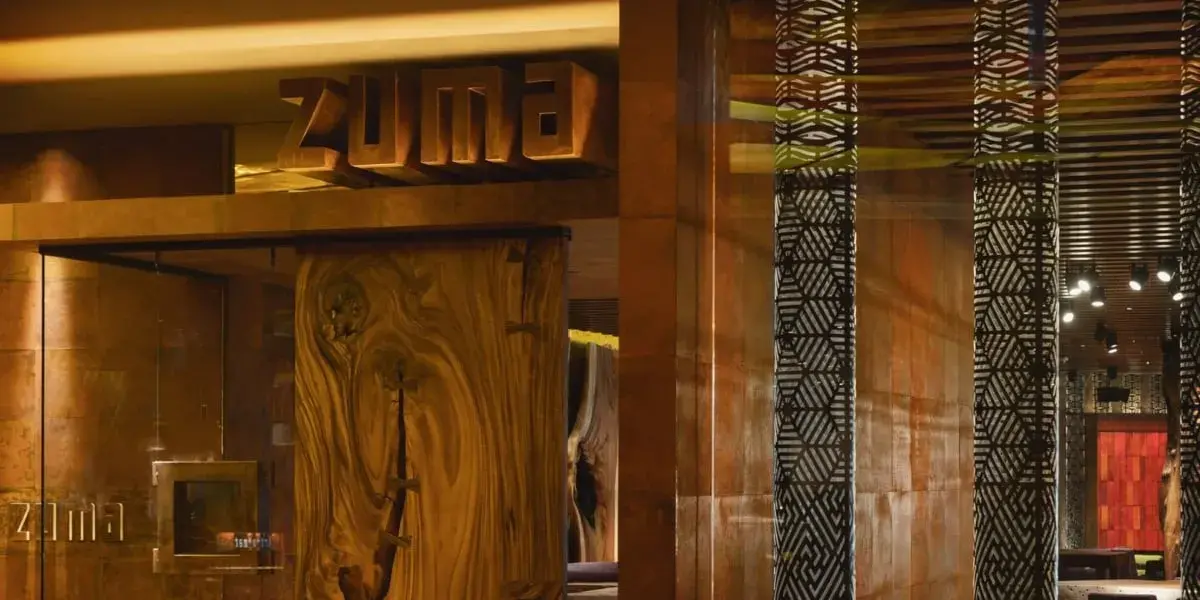Entrepreneurs
Zuma: Where Japanese Izakaya Meets Global Excellence

The Japanese Izakaya-style restaurant chain, Zuma, is now inextricably linked to one of the most important names in international dining. Founded by celebrated chef and entrepreneur Arjun Waney, and then-talented chef Rainer Becker in 2002, the Zuma brand was an initiative borne out of the passion Becker had for Japanese food and culture. After six years, Becker returned to London with a dream of creating a dining concept that, through various elements, would encompass the very essence of Japanese Izakaya—a casual, relaxed style of dining where dishes were shared at the table. The idea worked, and the success of Zuma opened it up to be located in cities everywhere.
The menu is created to evoke the informal dining traditions of Japan, where small, savory dishes are shared among friends and loved ones. At Zuma, ordering isn’t rigidly structured, giving diners the freedom to explore a selection of dishes at their own pace. Doubtless enough, Becker’s time in Tokyo had much to do with the concept that it formed: immersing himself in food culture from that country and all these flavors about Japanese cuisine that were so vibrant and diverse.
What sets Zuma apart from any other Japanese restaurant is the three separate kitchens that specialize in different aspects of Japanese cooking. The signature modern Japanese is dished out of the main kitchen, while expertly crafted sushi and sashimi are provided at the sushi counter. Meanwhile, robata grill goes for grilled delicacies cooked over an open flame. This trifecta allows Zuma to offer fresh servings all the time, bringing a lot of culinary delights that appeal to almost every palate.
For twelve months in London, the operation started small but proved to be something big. Now, with 14 permanent and 8 seasonal locations in key cities like Dubai, Hong Kong, New York, Miami, Bangkok, and Istanbul, Zuma has grown into an international culinary powerhouse, retaining the essence of its original concept while incorporating elements that reflect the local culture and dining preferences of the region.
Outside Japan, Zuma has a very huge, passionate following; its unique combination of traditional Japanese flavors with modern presentation has easily caught the fancy of foodies all around the world. Its success is mainly ensured through maintaining an overall consistency across all its worldwide outlets and integrating the same offerings with local markets. Be it New York streets or a luxurious beachfront in Maldives, Zuma serves an unforgettable experience at the table. Zuma’s menu is a joy of the Japanese cuisine, whose variety underlines freshness and quality. Signature dishes here at the restaurant include a vast range of teriyakis- chicken, beef, and shrimp-and other options like bento boxes, dumplings, tempura, and sushi rolls. To cater to those in quest of a plant-based option, Zuma also has an exclusive vegan and vegetarian menu so that every diner finds something to suit their taste.
Of all the most interesting features of Zuma’s menu, the robata grill seems to be a traditional Japanese method of cooking food over hot charcoal. This technique provides each dish with a unique smokiness that any meat and fish lover will enjoy. At Zuma, the robata boasts masterfully grilled meats, fish, and vegetables all of which are done with great care and attention to detail. A defining feature would be the sushi counter, where the artistry of Zuma’s sushi chefs combines to present beauties in the form of sushi and sashimi platters as delicious as they are to the eyes. From the most conventional tuna and salmon nigiri to more adventurous versions of yellowtail with chili daikon, the sushi at Zuma is an inventive delight.
With its impressive global footprint, Zuma has not only set a new benchmark in Japanese Izakaya dining but also inspired a whole new wave of Japanese restaurants all over the globe. What started out as a single location in London has now blossomed into a global empire with more than 70 Zuma restaurants serving diners in some of the world’s most prestigious cities. Continued expansion attests to the brand’s enduring popularity and the universal appeal of its dining concept.
There is a variation for each of the Zuma locations, where each one has been tailored to its environment, but the commitment to quality, service, and innovation is the same in every instance. This has led Zuma to garner many awards and accolades, including being named the best restaurant in the Middle East and being recognized by the world’s top food critics.
